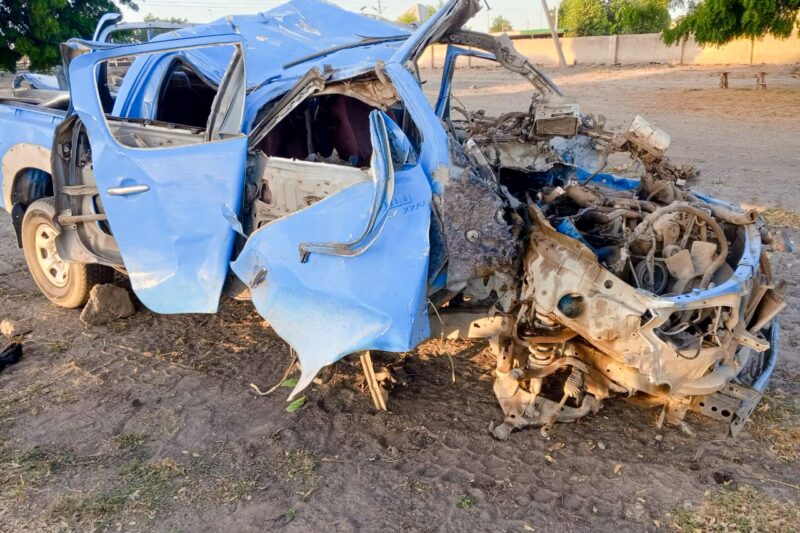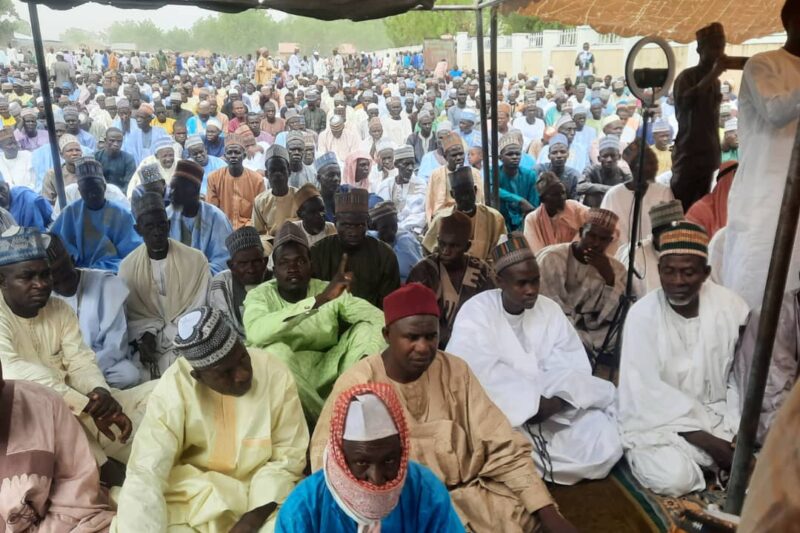Although farmers in Borno State have been urged to return to their lands, women say they lack adequate support to start over.
It’s hard to start with nothing, they have told the government.
Most farmers – men and women – have not been able to farm for years, mostly because they had to flee their lands after the rise in the number of attacks by extremists, mostly by members of the Jamā’at Ahl as-Sunnah lid-Da’wah wa’l-Jihād (JAS) – more commonly referred to as Boko Haram – and the Islamic State West Africa Province (ISWAP).
Many farmers died in the attacks, some were raped, kidnapped and abducted, and others had to flee for their lives and joined the millions of internally displaced persons living in the northeast of Nigeria.
During a one-day official visit to Maiduguri on Thursday, June 16, President Muhammadu Buhari directed the Nigerian military and other security agencies to work with the Borno State government and come up with modalities that would allow people to have safe access to their farmlands.
Following the president’s visit, Borno State governor Babagana Umara Zulum visited farming communities on Sunday, June 20, urging the people to go back to their farms as soon as possible. He also held meetings with security operatives to discuss new ways to ensure the safety of farmers on their lands “so as to avoid a livelihood crisis”.
Some farmers with land close to Maiduguri – and who were encouraged by the visits by both the president and the governor and their promise to make farming safe again – had already started returning to their lands.
Halima Umara, a resident of Maiduguri, told RNI reporter Hadiza Dowood that she had returned to her farm after many years of living in fear from the insurgency.
“My occupation is farming and I have missed many years of being on my land because of the frequent attacks by extremists. It has not been safe to farm. Too many farmers and agriculture workers were killed in the attacks. Some were raped, kidnapped, abducted,” she said.
“Now I am back farming just in time for the rainy season and I have begun to plant seeds. My farm is behind the Maimalari Military Barracks. I am just renting the farm at this stage. In time, when it is safe again, I hope to return to my ancestral home in Foshar in Mamuri,” Umara said.
She said she was very grateful for the government’s promise of protection.
“The government has urged all farmers to be fearless and return to their land and that is what I have done.”
Both Buhari and Zulum had said they would provide security for farmers to ensure their safety on their lands.
But Umara said she was really struggling moneywise and that the price of seeds was “very high”.
“The prices have increased exorbitantly. Seeds have never cost more than they do at the moment. One plate of groundnut seed costs 1,000 naira, millet is between 400 naira and 450 naira. The cost of bambara groundnut is 900 naira. And we can’t even afford to buy fertiliser,” she said.
A woman farmer, who asked to remain anonymous, said that it was all well and good that the government wanted farmers to return to their land but they desperately needed help.
“The government should help us by providing improved seeds, agriculture implements and equipment, and supportive sustainable supervision.”
Hajja Gana Suleman, the president of Jire Dole (Justice is a Must), a network formed under the Allamin Foundation For Peace Development and the Kanem Borno Human Development Association, said that she had arranged a meeting with engineer Bukar Talba, the Borno State commissioner of agriculture and natural resources, to discuss various possibilities of helping women farmers across the state.
- The bambara groundnut is a traditional crop, said to have originated in the northern areas of Nigeria and Cameroon. It might refer to the tuber root Apios Americana that bears edible beans as well as tubers. They’re an excellent plant-based source of protein and high in various vitamins, minerals and plant compounds.
- Jire Dole is a network of survivors and relatives of missing persons of the JAS conflict.
- The Allamin Foundationis a non-profit, non-political, non-religious and non-governmental peace-building organisation.
- The Kanem Borno Human Development Associationprovides multisector human development services to the most vulnerable people in communities.








